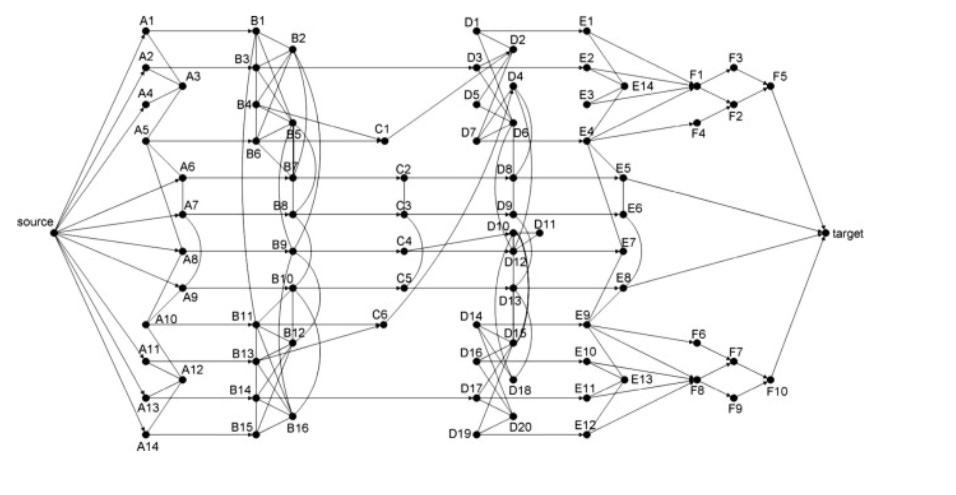Analysing reliability in engineering systems
The project
Many design principles are based on “a chain is as strong as its weakest link”. However, engineering systems are typically not in the form of a chain but actually complicated networks, where individual safety of components matters as well as the overall structure of the system.
While we can increase reliability by improving all components, this might not be cost-effective. The work of this project will give a better understanding of how the reliability of individual components affects overall reliability, with the aim of improving safety of people and property.

Critical subsystem of electrical circuit of Boeing 787
As the size of engineered systems grows, problems in reliability theory can become computationally challenging, often due to the increasing number of ways a system can fail. In this research, we demonstrate how Multilevel Monte Carlo (MLMC) — a simulation approach which is typically used for stochastic differential equation models — can be applied in reliability problems by carefully controlling the bias-variance tradeoff in approximating large system behaviour.
In this first exposition of MLMC methods in reliability problems, we address the canonical problem of estimating the expectation of a functional of system lifetime, for non-repairable and repairable components, demonstrating the computational advantages compared to classical Monte Carlo methods.
This project is part of The Alan Turing Institute-Lloyd’s Register Foundation Programme for Data-Centric Engineering.
Funded by:

For more information, please contact Dr Sebastian Vollmer
svollmer@turing.ac.uk
Organiser:
Dr Sebastian Vollmer, Associate Professor in Data Science,
University of Warwick

People:
Dr Louis Aslett, University of Oxford
Dr Tigran Nagapetyan, University of Oxford
